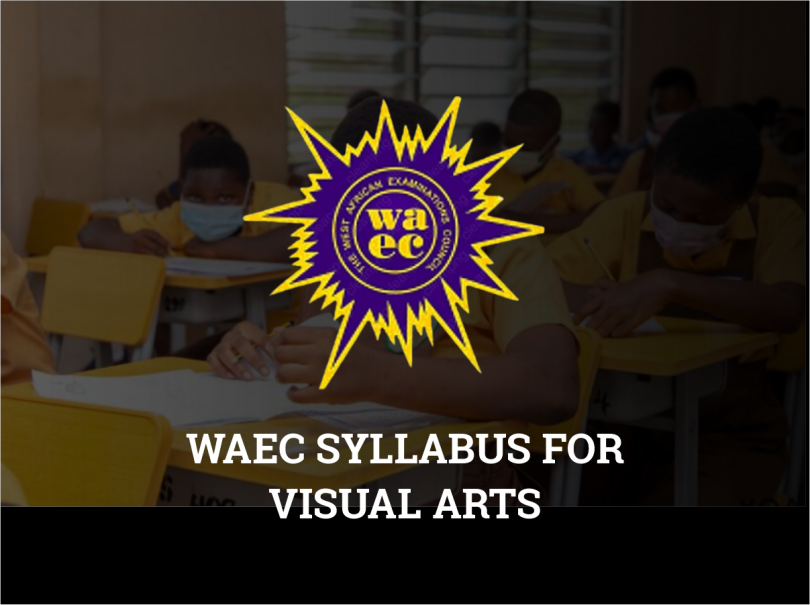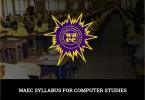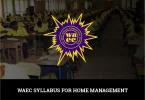Did you register for WAEC, and will you be writing Visual Arts in the upcoming exam? If yes, you need to have a better understanding of the WAEC syllabus for Visual Arts. WAEC has released the syllabus for Visual Arts to help prepare candidates for the forthcoming examination.
The WAEC Syllabus for Visual Arts is a roadmap of everything that the subject entails, ranging from the topics, the objectives of each topic, the examination structure, and the recommended textbooks.
Without adequate guidance and relevant materials, you might find it difficult to prepare for the West African Examination Council, and that is why we are here to help by bringing you vital information on how you can prepare for the examination with the right study guide.
Outline of WAEC Syllabus for Visual Arts
If you are writing Visual Arts in WAEC 2025, we have the WAEC syllabus for Visual Arts. Carefully read it to understand the topics, objectives, exam structure, grading criteria, and the recommended resources. Study carefully, as it is a veritable tool for the Visual Arts examination:
| Paper | Section | Topics Covered | Key Focus Areas |
|---|---|---|---|
| Paper 1 & 2 | General Knowledge in Art | – Nature and branches of art – Visual elements and principles – Art tools and materials – Perspective – Art and craft terminology – Interdisciplinary connections | – Understanding foundational art concepts – Application of design principles – Familiarity with art tools and materials – Grasping perspective techniques – Knowledge of art-related terms – Exploring connections between art and other disciplines |
| Art of West Africa | – Traditional art forms across West African regions – Modern traditional art (e.g., Oshogbo art, Kente weaving) – Contemporary art institutions and movements – Notable contemporary West African artists | – Studying regional art characteristics – Understanding the evolution of traditional to modern art – Familiarity with art institutions and movements – Recognizing contributions of contemporary artists | |
| Prehistoric, Ancient Egyptian, and Western Art | – Prehistoric art periods (Paleolithic to Neolithic) – Ancient Egyptian art (Old, Middle, New Kingdoms) – Greek art periods (Archaic, Classical, Hellenistic) – Medieval art features – 19th and 20th-century Western art movements (e.g., Impressionism, Cubism) | – Exploring historical art developments – Understanding cultural and religious influences on art – Recognizing characteristics of various art periods – Studying major Western art movements and their impact | |
| Paper 3 | Drawing | – Drawing from objects – Drawing from nature – Drawing from life | – Developing observational and interpretative skills – Capturing forms and textures from natural and man-made objects – Depicting human figures accurately |
| Creative Design (2D) | – Graphic design (e.g., posters, logos) – Textile design (e.g., batik, tie and dye) – Picture-making (e.g., painting, photography, mosaic, collage) | – Applying design principles in two-dimensional formats – Experimenting with various media and techniques – Expressing creativity through visual compositions | |
| Creative Design (3D) | – Sculpture – Product design/modeling – Ceramics – Crafts (e.g., basketry, jewelry, calabash decoration) | – Creating three-dimensional artworks – Utilizing different materials and techniques – Demonstrating originality and technical proficiency |
Recommended WAEC Textbooks for Visual Arts
General Art Theory and Appreciation
- Bernard S. Myers – Art & Civilization
An exploration of the evolution of art and its cultural significance. - Harold Osborne – Art of Appreciation
Guides readers in understanding and valuing various art forms. - Maurice de Sausmarez – Basic Design: The Dynamics of Visual Form
Focuses on the principles of design and visual composition. - Harry Sternberg – Composition
Delves into the elements that make up compelling artistic compositions. - Robert Clement – The Art Teacher’s Handbook
A practical guide for teaching and understanding art concepts.
Crafts, Design, and Practical Skills
- Henry Pluckrose – The Book of Crafts
Offers insights into various craft techniques and their applications. - Whitfield – Beginning Pen Lettering (Book 3)
Introduces the fundamentals of pen lettering and calligraphy. - Leon Underwood – Bronzes of West Africa
Examines the history and techniques of West African bronze art.
African Art and Cultural Context
- Werner Gillon – A Short History of African Art
Provides an overview of African art history and its cultural contexts. - Ulli Beier – Art in Nigeria
Discusses Nigerian art forms and their societal roles. - Eric O. Ayisi – An Introduction to the Study of African Culture
Explores African cultural practices and their artistic expressions. - W.A. Olaosebikan – Cultural & Creative Arts: A Source Book for Teachers
Serves as a resource for teaching cultural and creative arts in schools. - S.J. Wangboje – A Textbook on Art for Senior Secondary School
Tailored specifically for senior secondary students, covering various art topics.
Nigerian-Focused Textbooks
- Bayo Okunlola et al. – Integrated Visual Arts for Senior Secondary Schools
Designed to align with the Nigerian curriculum, covering a broad range of visual arts topics. - UPL Publishers – Certificate Art for Junior and Senior Secondary Schools
Provides foundational knowledge suitable for both junior and senior secondary levels.
Conclusion
We hope this article has been of great help to you. Let us know your thoughts in the comments section below. We would like you to check back on this page for more relevant information about universities, polytechnics, and colleges of education.
You can bookmark or save this page for a revisit. If you have any questions or further inquiries, kindly drop them in the comment box below.







Leave a Comment